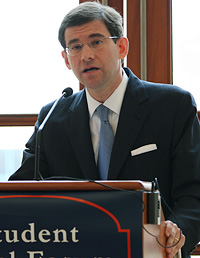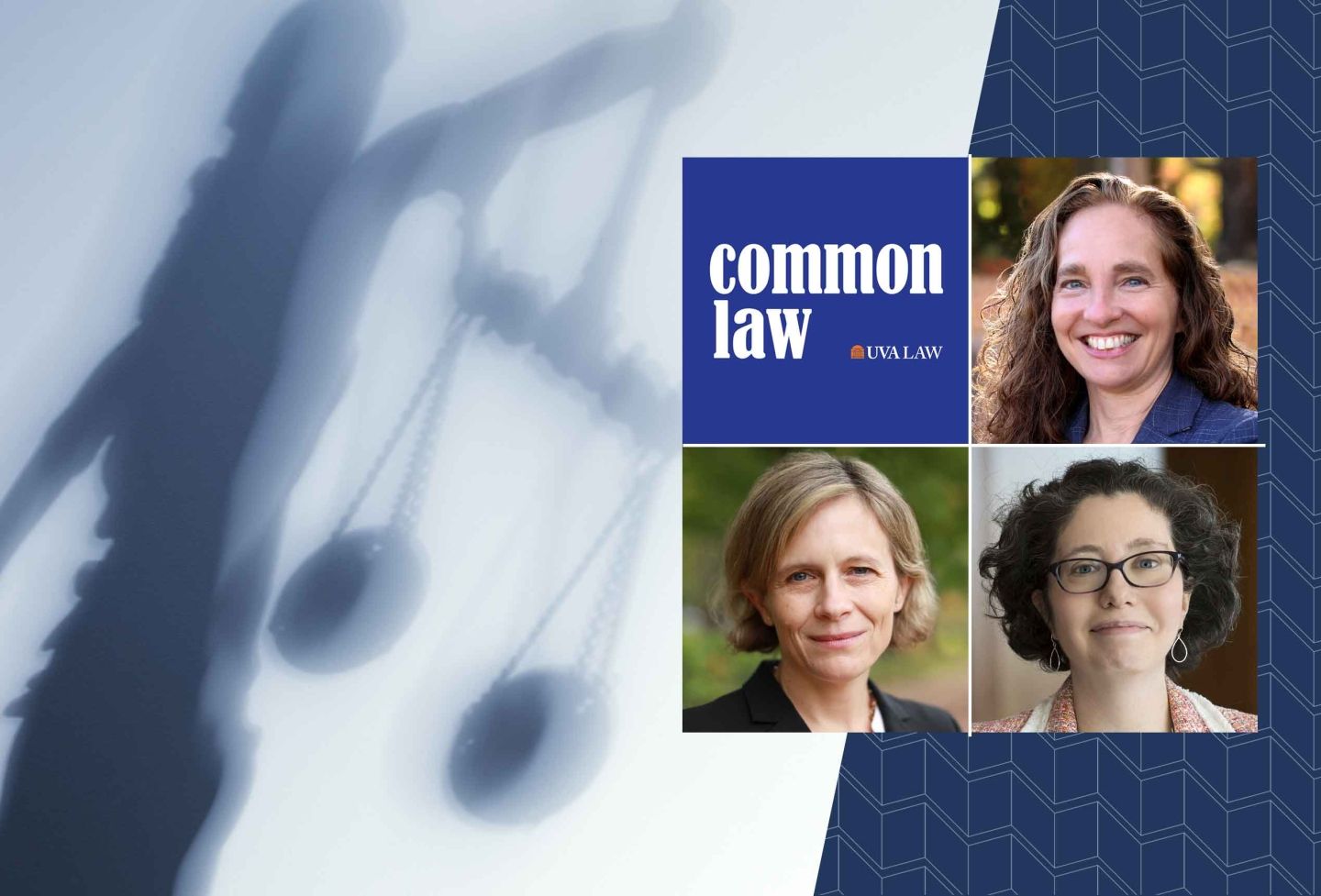Judicial Independence Safe, Pryor Says
 Violence, political criticism, budget cuts, impeachment, and legislation designed to constrain the judiciary are some of the threats that have existed for judges since the formation of the United States. Recently, several leaders in the legal community have voiced concerns that judicial independence is in jeopardy because these threats could influence judges to make biased decisions. The chorus, led in part by former Supreme Court Justice Sandra Day O’Connor, is pointing out problems that are non-issues, suggested Judge William H. Pryor Jr. of the U.S. Court of Appeals for the Eleventh Circuit at the Ola B. Smith Lecture March 19. Thanks to Americans’ recognition of the importance of an independent judiciary, now and throughout history, judicial independence is safe, he said. Pryor’s talk was sponsored by the Student Legal Forum and the Virginia Law Review.
Violence, political criticism, budget cuts, impeachment, and legislation designed to constrain the judiciary are some of the threats that have existed for judges since the formation of the United States. Recently, several leaders in the legal community have voiced concerns that judicial independence is in jeopardy because these threats could influence judges to make biased decisions. The chorus, led in part by former Supreme Court Justice Sandra Day O’Connor, is pointing out problems that are non-issues, suggested Judge William H. Pryor Jr. of the U.S. Court of Appeals for the Eleventh Circuit at the Ola B. Smith Lecture March 19. Thanks to Americans’ recognition of the importance of an independent judiciary, now and throughout history, judicial independence is safe, he said. Pryor’s talk was sponsored by the Student Legal Forum and the Virginia Law Review.
“I submit that the independence of the federal judiciary today is as secure as ever. The current criticisms of the judiciary are relatively mild and on balance a benefit to the judiciary,” Pryor said. Although there have been times in American history where judicial independence has been threatened, he added, now is not one of them.
Judicial independence, Pryor described, can be viewed in two parts; decisional independence and institutional independence. The ability of judges to decide cases impartially based on the facts and law represents the decisional component, while institutional independence, the ability of the judiciary to protect its institutional integrity, characterizes the other part. “As scholars have described this arrangement, we have both independent judges and a dependent judiciary,” he said.
Those who fear the judiciary is in danger have cited three primary threats: public criticism, constraining legislation, and an increasingly difficult and politicized selection process.
Criticism, although sometimes hard to swallow, is essential for progress and improvement. Often, the harshest critics of the judiciary are the justices themselves, Pryor argued. “I doubt any contemporary politician in America has been more flamboyant in criticizing than the federal judiciary.” In their dissenting opinions, for example, justices criticize decisions regularly. “Americans are more, not less, likely to respect judicial independence when they know that the law can be criticized and changed by ordinary political processes,” he said. “I am reminded of the adage our mothers taught us, ‘sticks and stones may break my bones but words will never hurt me,’” he joked.
Claims that current criticisms of the judiciary are unprecedented “diminish the sacrifices that earlier giants of the federal judiciary endured,” Pryor asserted. Federal judges in the civil rights era suffered severe ostracism and abuse, more so than contemporary judges. The mother’s home of one judge was the target of a bomb, and the grave site of the son of another justice was vandalized. Violent attacks are rare today and it’s typically not the harsh critics who are performing these acts; it’s the disgruntled litigants or violent criminals who target judges. In response to judges’ recent safety concerns, Congress has provided federal judges with home security systems. “That appropriation suggests that the politicians and the public they serve still appreciate the need for an independent judiciary.”
Bills introduced in Congress that would limit the federal judiciary’s decision-making power, such as matters involving religion, flag burning, and the pledge of allegiance have all failed. Intense emotions after a Florida court ordered the removal of Terri Schiavo’s feeding tube, leading to her death, have already waned. Emotionally charged, controversial decisions rarely lead to the demise of the judiciary, Pryor explained.
Others have argued that the political circus surrounding federal judge appointments deters capable lawyers from seeking the position. “Many talented lawyers no doubt are not attracted to the difficulties of public service, including the lower pay and potential unpleasantness of a political contest as a prelude to holding office,” he said. “Are the potential nominees who are not attracted to the hardships of public service necessarily the best candidates to be independent judges? An independent judge must be willing to make difficult, unpopular, and even courageous decisions when the law so demands.”
Pryor considers election campaigns for presidents and senators much worse than having to respond to the questions asked in the confirmation process. “Given a choice between raising the funds, shaking the hands, traveling from city to city, speaking on the stump, eating the proverbial rubber chicken, responding to the attacks of an opponent, and filming the ads that are involved in a state-wide election campaign on the one hand and responding to the questions asked in the confirmation process on the other hand, I would choose the confirmation process every time.”
Pryor concluded his talk with this thought: “We must depend on the persuasiveness of our written opinions to command the respect of our fellow citizens. In that way we have the foremost responsibility of safeguarding our independence.”
Founded in 1819, the University of Virginia School of Law is the second-oldest continuously operating law school in the nation. Consistently ranked among the top law schools, Virginia is a world-renowned training ground for distinguished lawyers and public servants, instilling in them a commitment to leadership, integrity and community service.


